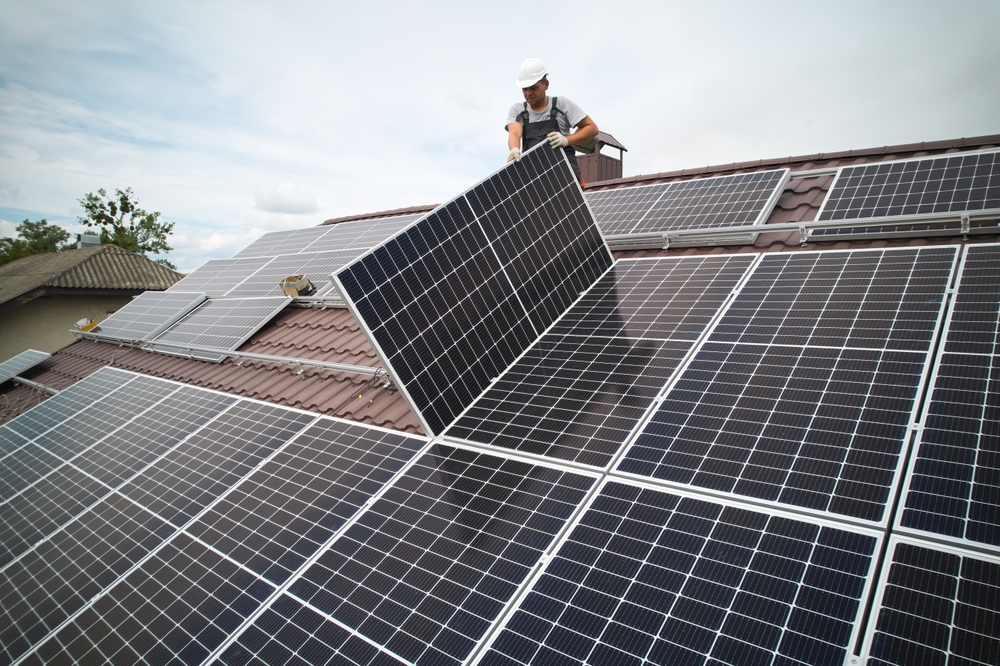“People should be welcome to install solar panels on their roofs, but please without subsidies.” With this statement, Federal Minister for Economic Affairs Katherina Reiche initiated the debate about a change of course in the energy transition. She suggested ending subsidies for private photovoltaic systems. She received support from RWE CEO Markus Krebber, who considers current solar subsidies outdated and socially unjust. In his view, a solar system is worthwhile even without subsidies, as households save on electricity costs and bear fewer grid expansion costs. (welt: 27.08.25)
Criticism of the free-rider effects of solar subsidies
Krebber criticizes the fact that current solar subsidies primarily create “freeloader effects.” He emphasized to the Düsseldorf Business Journalists Association (WPV) that subsidies for new residential rooftop systems are wrong. While feed-in tariffs and tax breaks exist, Krebber considers them unnecessary. Private operators reduce their electricity costs while simultaneously benefiting from reduced grid fees, which are distributed based on consumption.

In his view, the problem is that small photovoltaic systems feed electricity into the grid when it’s not needed. “Actually, these are exactly the kind of users and feeders nobody wants,” he says. This is because solar power fed into the grid flows when there’s strong sunlight, while prices on the exchange are low. Nevertheless, operators receive compensation that exceeds market prices. The costs of grid expansion, however, are borne by the general public, even those households that don’t own their own system.
Change of course on network costs called for
Krebber demands a change in the cost structure. He calls for a reallocation of grid costs: “Those who only use the grid in extreme situations should actually pay more.” Those who completely disconnect, he says, should not have to contribute anything. Those who, on the other hand, use the grid like insurance to obtain electricity on critical winter days should bear higher costs.
He also calls for construction cost subsidies for connecting new systems. Whether it’s a solar roof, an offshore wind farm, or a biogas plant – every operator must participate directly in grid expansion. Only in this way can economically rational decisions be made. “Then I’ll only build where the grid is available or where, taking grid costs into account, the construction is still worthwhile.” Krebber receives support from energy economists. Lion Hirth of the Hertie School believes home storage makes little sense. “Many people buy home storage systems to advance the energy transition – the KfW subsidizes this with taxpayer money.” But storage systems hardly relieve the load on the grid; instead, they often place additional strain on it.
E.ON also calls for an end to solar subsidies
Not only RWE, but also Germany’s largest grid operator, E.ON, is calling for an end to solar subsidies. CEO Leo Birnbaum recently stated: “Why are we subsidizing capacities we don’t need and technologies that have long been economically viable?” He also criticizes the exemption of storage from grid fees, as these provide little relief and ultimately increase costs for customers.
Krebber underscores this point: “If we don’t organize the energy transition at the lowest possible cost, we will lose acceptance.” He believes a revised incentive system is essential. After all, EEG payments for solar power amounted to just under ten billion euros in 2023, as the Federal Network Agency’s 2024 monitoring report shows. Biomass is significantly lower at just over 3.8 billion euros, and offshore and onshore wind power are even lower. Krebber is convinced that the called-for change of course should contribute to making the energy transition more efficient.
Bottlenecks in grid expansion slow photovoltaic boom
While solar subsidies are swallowing up billions, grid expansion is stalling in many places. In Baden-Württemberg, FairNetz announced in July that no new photovoltaic systems could be connected for the time being. Similar restrictions previously existed in Oranienburg, Brandenburg. There, the restrictions affected not only photovoltaics, but also wall boxes, heat pumps, and industrial plants.
Despite these bottlenecks, photovoltaics is booming. Installed capacity doubled within a decade. At the end of March 2025, the Federal Statistical Office recorded over 4.2 million systems with almost 100 gigawatts of nominal capacity. A year earlier, the figure was 3.4 million with 81 gigawatts. Solar’s share of the electricity mix now reaches around 14 percent. But without a consistent change in funding and grid expansion, the future of this development remains fragile.
